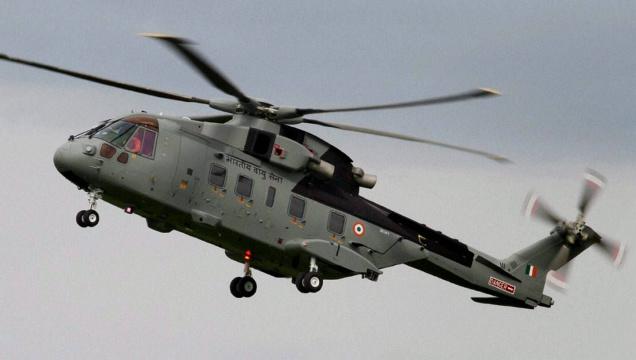 NEW DELHI, August 17; With the Comptroller and Auditor General of India (CAG) rejecting most of the replies of the Defence Minister and the Indian Air Force in the scam-tainted Rs. 3,726-crore VVIP AgustaWestland chopper deal, it would be left to the Public Accounts Committee (PAC) to hear them as they defend themselves and explain why acquisition was delayed and requirements were revised.
NEW DELHI, August 17; With the Comptroller and Auditor General of India (CAG) rejecting most of the replies of the Defence Minister and the Indian Air Force in the scam-tainted Rs. 3,726-crore VVIP AgustaWestland chopper deal, it would be left to the Public Accounts Committee (PAC) to hear them as they defend themselves and explain why acquisition was delayed and requirements were revised.
“As the acquisition process was inordinately delayed, IAF continued to face operational disadvantage on account of use of ageing helicopters. A critical requirement of replacement of ageing fleet of Mi-8 helicopters could not be fulfilled even after 13 years of initiation of the acquisition process, due to failure of MoD/IAF to devise realistic Service Qualitative Requirements (SQRs),” the CAG report on acquisition of helicopters for VVIPs, tabled in Parliament last week, concluded.
The multi-crore rupee deal for the supply of 12 VVIP choppers (AW-101) from AgustaWestland is now being probed by the Central Bureau of Investigation for possible kickbacks to middlemen, agents or other persons in both Italy and India.
The government’s auditor found no justification on the recommendation and assurance given by the then Chief of the Air Staff in October 2007 to conduct Field Evaluation Trials (FET) abroad for the shortlisted vendors instead of conducting the trials at home.
“Evaluation of helicopters following different methodologies could not give the desired assurance, especially in the light of Defence Minister’s directives to provide equal opportunity to shortlisted vendors for field trials. FET was conducted abroad on the representative helicopters of AgustaWestland and not on the actual helicopter (AW-101) contracted. The contracted helicopter was still in its developmental phase, as stated by the vendor,” the CAG report said.
While the AgustaWestland trial was held in the U.K., the American Sikorsky chopper was tested in the U.S. from in Jaunary-February 2008, the CAG report said. The then IAF Chief former Air Chief Marshall F.H. Major, in a letter to the government in October 2007, had said the evaluation team would consist of high-level IAF officers and experts in helicopter operations and would in no way compromise any of the aspects during the field trials.
The CAG report said that Defence Minister A.K. Antony had questioned the rationale for conducting field evaluation trials at vendor specified locations instead of in India. “What is the guarantee that fidelity and credibility of these trials will remain above board when they do not take place within the country,” Mr. Antony had asked.
Sources in the air force said that the former IAF chief had also pointed out that Mi-8 helicopters’ were surviving on extended life which would also expire in 2012 and it was not advisable to use these choppers for VVIP commitments.
While rejecting the reply of the Defence Ministry as “unacceptable” on increasing the number of VVIP helicopters to be purchased from eight to 12, the CAG report said the Communication Squadron of the IAF was managing the service of air transportation for VVIPs with the fleet of eight Mi-8 helicopters till present. “As such, additional procurement of four helicopters costing Rs. 1,240 crore was avoidable,” it said.
On framing of Services Qualitative Requirements (SQRs), the CAG report noted that despite the directions of the Prime Minister’s Office to make the SQRs broad based to increase competition, the SQRs were made more restrictive which narrowed down the choices to limited range of helicopters being capable of meeting the requirements of the VVIP fleet.
On altering the cabin height of at least 1.8m which was made a mandatory operational requirement and lowering the altitude requirement to 4,500m, the CAG report did not agree with the Defence Ministry’s reply. Air force sources said that rarely President and PM made visits to places which involved flying at an altitude beyond 4,500m. Among 29 passes and 109 hill stations in the country, only four hill stations had an elevation of more than 6,000m.
The CAG report was prepared by Vinod Rai whose term as CAG ended in May 2013.
